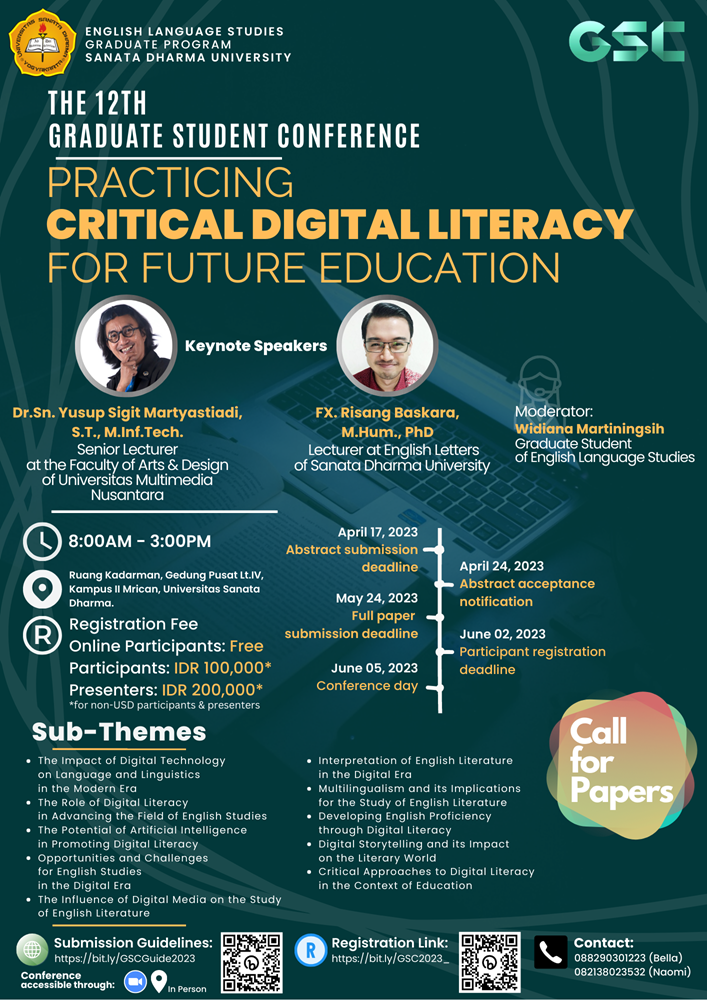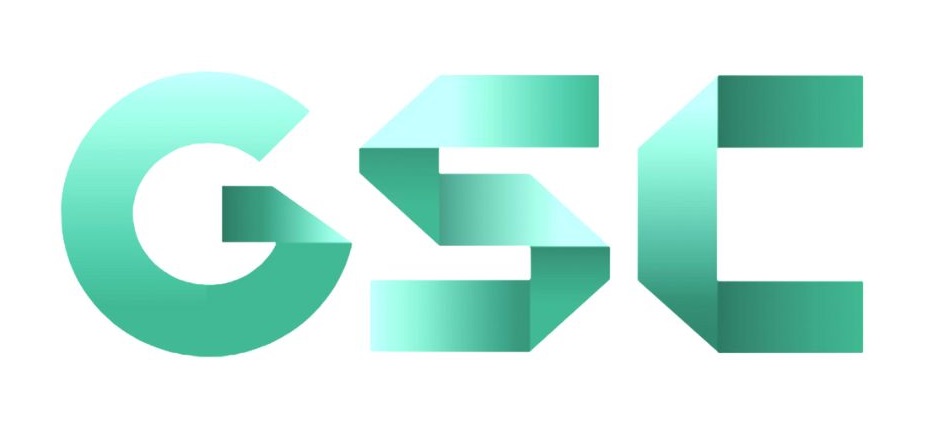June 19, 2023
(Vol. 12, 2023)
Introduction

In today's society, technology is becoming an essential aspect of our lives. As the digital age continues to evolve, the need for digital literacy and critical thinking skills is becoming increasingly important, particularly in the context of education.
Digital literacy is the ability to use digital technology, communication tools, and networks to access, manage, integrate, analyze, and evaluate digital information effectively. It includes the capacity to read, interpret, and create a range of digital media, using a variety of digital devices. Digital literacy is a necessary skill for learners of all ages, especially in the modern era, where digital technology is ubiquitous in every aspect of our lives, including education.
However, it is not enough to merely possess digital literacy skills. The ability to think critically about the information we consume and produce in digital spaces is just as crucial. Critical digital literacy is the ability to assess digital information, discerning its credibility, accuracy, and biases. It also involves the capacity to analyze, synthesize, and evaluate digital content to make informed judgments and decisions.
The theme of this conference is crucial in today's world because it addresses the growing need for critical digital literacy skills in education. The conference aims to provide a platform to explore how educators can develop critical digital literacy skills in their students. We believe that by fostering critical digital literacy, students will be better equipped to navigate the vast amount of information available on digital platforms, make informed decisions, and effectively communicate and collaborate with others.
The importance of digital literacy and critical thinking skills in education cannot be overstated. The modern-day classroom is no longer limited to traditional face-to-face interactions between teachers and students. Instead, educators must navigate a diverse range of digital platforms, including social media, blogs, podcasts, and online communities. While digital platforms provide tremendous opportunities for collaboration and learning, they also pose significant challenges. Therefore, Thus, it is important to understand and navigate these hurdles through Practicing Critical Digital Literacy for Future Education.
Keynote Speakers

Dr.Sn. Yusup Sigit Martyastiadi, S.T., M.Inf.Tech.
Dr.Sn. Yusup Sigit Martyastiadi, S.T., M.Inf.Tech is a full-time senior lecturer and assistant professor at the Faculty of Arts and Design at Universitas Multimedia Nusantara. He is also a parttime and guest lecturer at the Doctor of Arts Study Program of the Graduate Program at the Indonesia Institute of The Arts, Yogyakarta. With a a strong background in Art, Design, and Technology, he has dedicated himself to researching the aesthetics of interaction, 3D Game, Augmented Reality and Virtual Reality, among others. He earned his Bachelor’s degree from Sanata Dharma University’s Electronics Engineering Program, his Master’s degree in Multimedia Games Development from James Cook University, Australia, and has recently earned his Doctor of Arts degree from the Indonesia Institute of The Arts Yogyakarta.
Dr.Sn. Yusup Sigit Martyastiadi, S.T., M.Inf.Tech’s recent publications include “Observation on The Use of Visual Scripting for Interaction Design Students”, which observes the method of visual programming using the Bolt add-on, "Figur dan Citra: Penceritaan Ki Manteb Sudarsono Melalui Karya Foto Indra Leonardi", which analyzes Ki Manteb Sudarsono’s photo from the perspective of semiotic relations with the storytelling relationship between the image of man, nature, God and the third meaning, and "Aesthetics of Virtual: The Development Opportunities of Virtual Museums in Indonesia", which investigates the aesthetics of virtual museums and offers opportunities in the development of prospective Indonesian virtual museums.

FX. Risang Baskara, M.Hum., PhD
FX. Risang Baskara is a full-time lecturer at the English Letters Department of the Faculty of Letters at Sanata Dharma University in Yogyakarta, Indonesia. With a strong background in Technology-Enhanced Language Learning, Blended and Flipped Learning, he has dedicated himself to advancing language teaching through innovative methods. He earned his Bachelor's degree and Master's degree from Sanata Dharma University's English Letters Department and Graduate Program in English Language Studies, respectively, and has recently earned his Doctor of Philosophy in Education and Technology from Swinburne University of Technology, Sarawak Campus, Malaysia.
FX. Risang Baskara’s most recent publications include "Personalised learning with AI: implications for Ignatian Pedagogy", which presents examples of AI use in educational settings, highlighting the potential benefits and ethical challenges, "Exploring the Implications of ChatGPT for Language Learning in Higher Education", which examines the potential applications and limitations of ChatGPT in language instruction and practice, and "Chatbots and Flipped Learning: Enhancing Student Engagement and Learning Outcomes through Personalised Support and Collaboration", which explores the relationship between chatbots and flipped learning in an educational setting.
Apart from his academic pursuits, FX. Risang Baskara is also an active presence on social media, where he shares his experiences and insights into teaching tools, personal development, and self-improvement. He has also participated in personal and professional development by posting videos about generative AI, language technologies and digital tools on his YouTube channel.
Purpose and Objective
The objectives of implementing this activity include the following.
- As a medium for students majoring in language and language observers to share knowledge and express ideas related to education, linguistics, and English literature within the era of critical digital literacy.
- As a source of knowledge related to education, linguistics, and English literature during times of digital critical literacy, especially for seminar participants.
Theme and Sub-Themes
“Practicing Critical Digital Literacy for Future Education” will cover a range of themes, including, but not limited to:
- The Impact of Digital Technology on Language and Linguistics in the Modern Era
- The Role of Digital Literacy in Advancing the Field of English Studies
- The Potential of Artificial Intelligence in Promoting Digital Literacy
- Opportunities and Challenges for English Studies in the Digital Era
- The Influence of Digital Media on the Study of English Literature
- Interpretation of English Literature in the Digital Era
- Multilingualism and its Implications for the Study of English Literature
- Developing English Proficiency through Digital Literacy
- Digital Storytelling and its Impact on the Literary World
- Critical Approaches to Digital Literacy in the Context of Education
Call for Full Paper Procedure
- Presenters are requested to submit a full-paper draft.
- Presenters (both individual and team) can only submit one paper.
- Selected papers will be published in Graduate Students Conference 2023 Proceedings and International Journal of English Language Studies (IJELS)
- Submission guidelines
Important Dates
Presenter submission deadline : April 17, 2023
Abstract submission deadline : April 17, 2023
Abstract acceptance notification : April 24, 2023
Full paper submission deadline : May 24, 2023
Participant registration deadline : June 02, 2023
Conference day : June 05, 2023
Contribution of Conference Participants :
- Universitas Sanata Dharma (USD) students : free
- Non-USD presenter : Rp. 200.000,-
- In-person participant : Rp. 100.000,-
- Online participant : free
Transferring
Bank Account : Mandiri 1490010314575 a/n Bella Valencia Bawondes
Conference Information
- » Overview
- » Program
- » Presentations
- » Conference Schedule
- » Registration
- » Timeline




 Graduate Student Conference (GSC) is organized by the Graduate Program in English Language Studies, Sanata Dharma University, Yogyakarta, Indonesia.
Graduate Student Conference (GSC) is organized by the Graduate Program in English Language Studies, Sanata Dharma University, Yogyakarta, Indonesia.